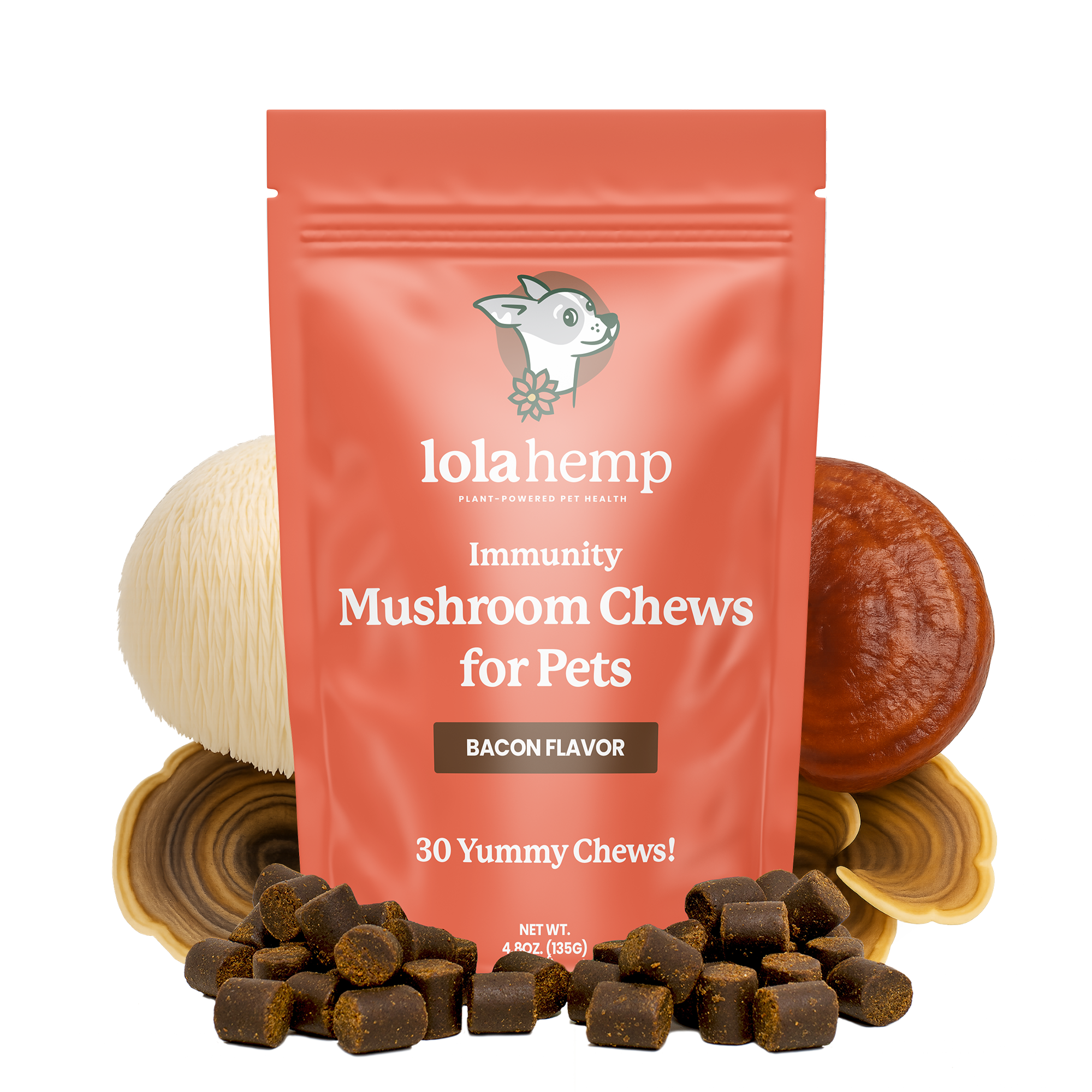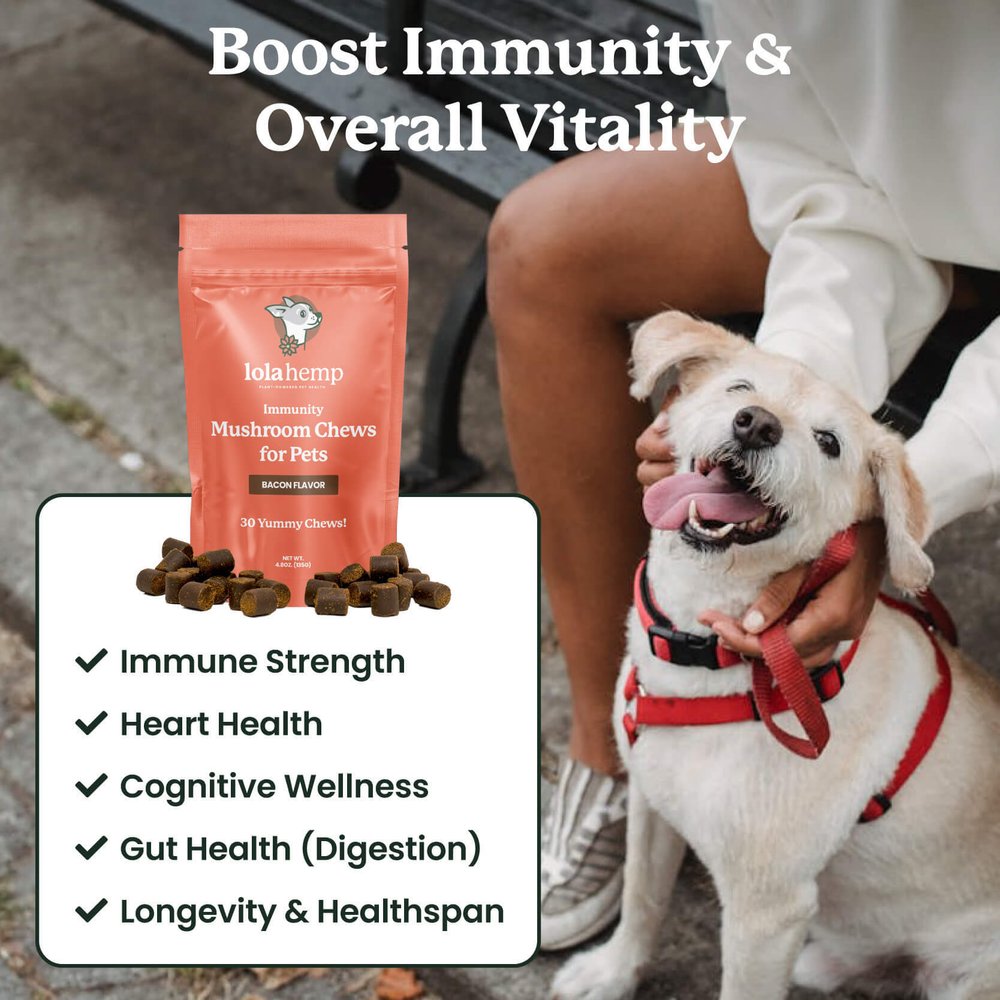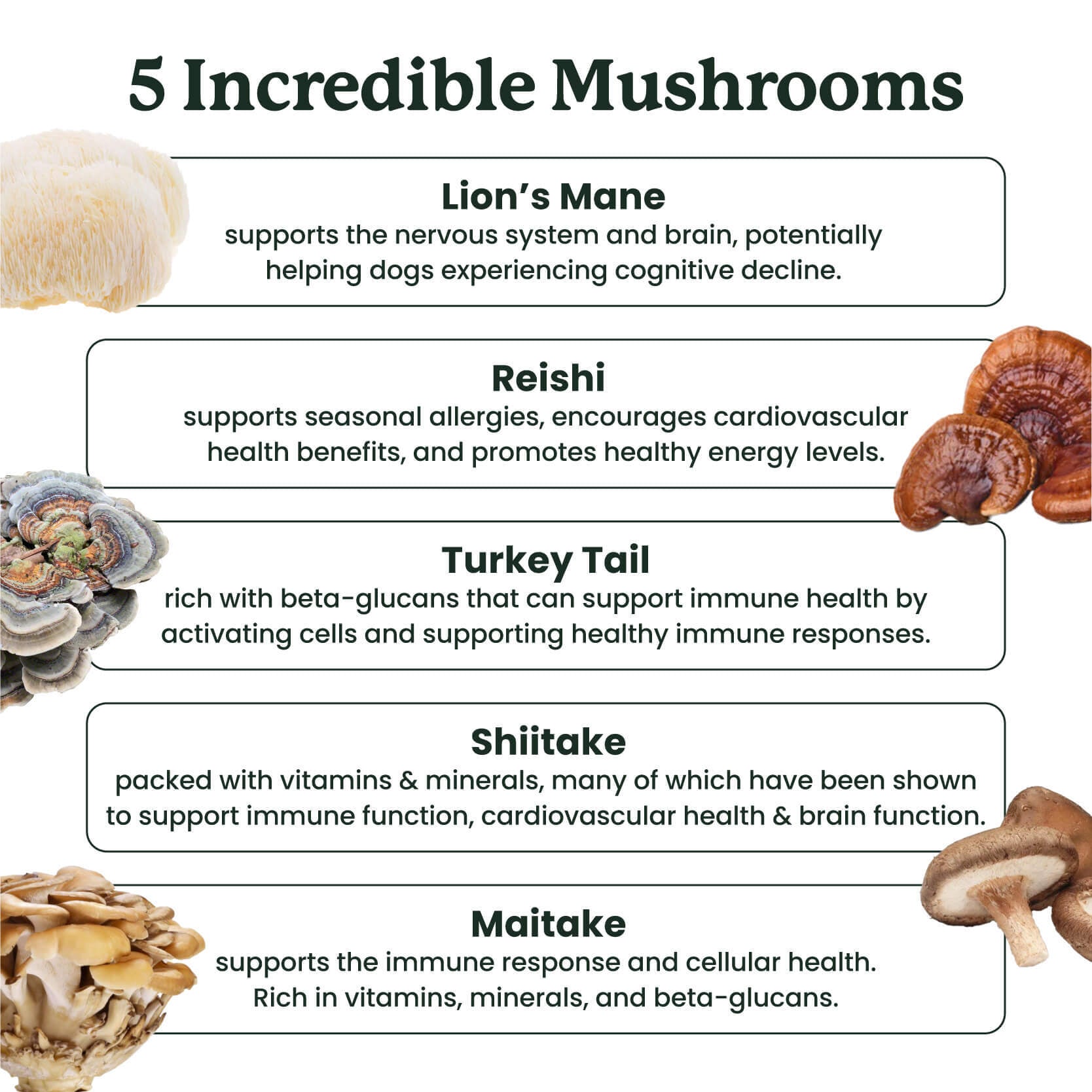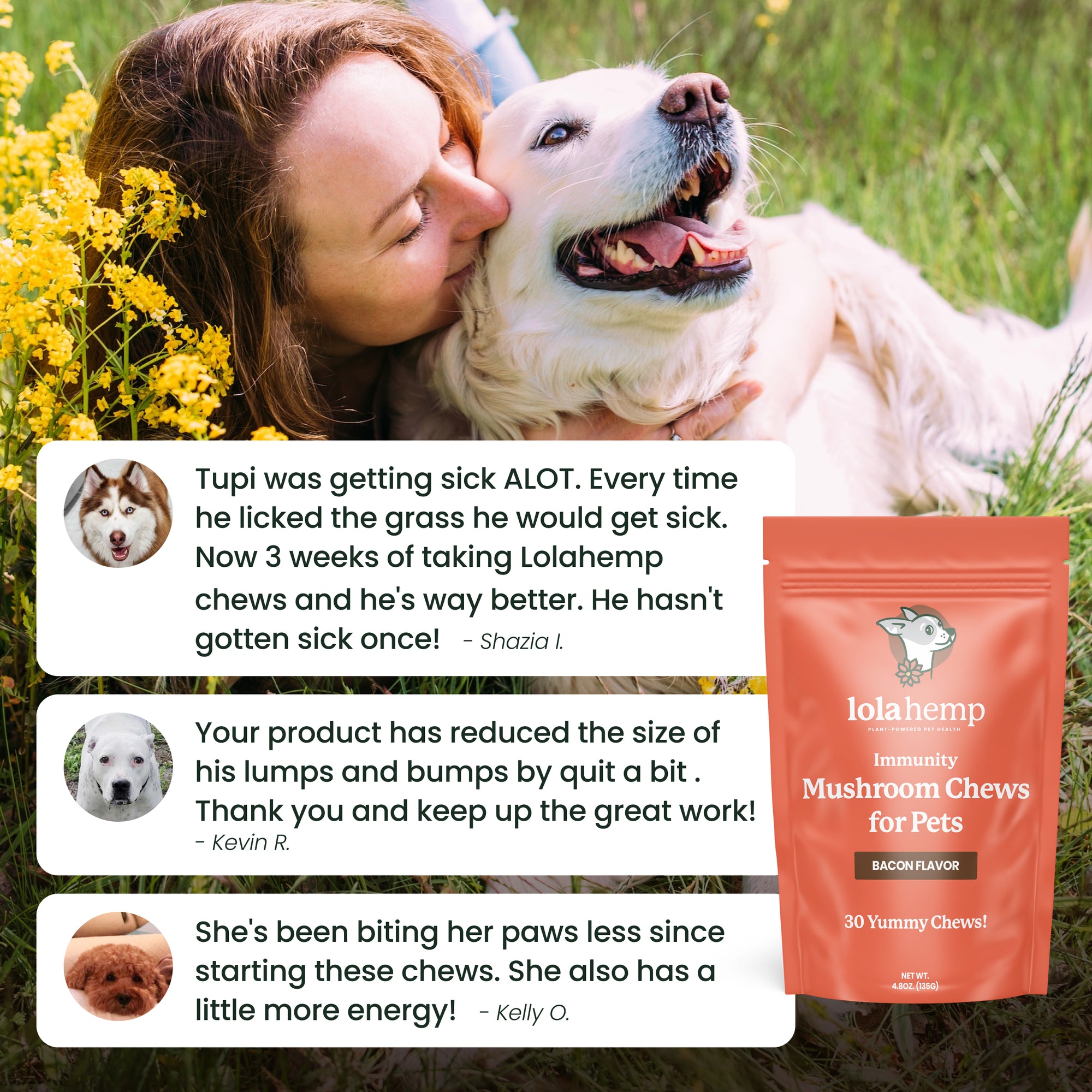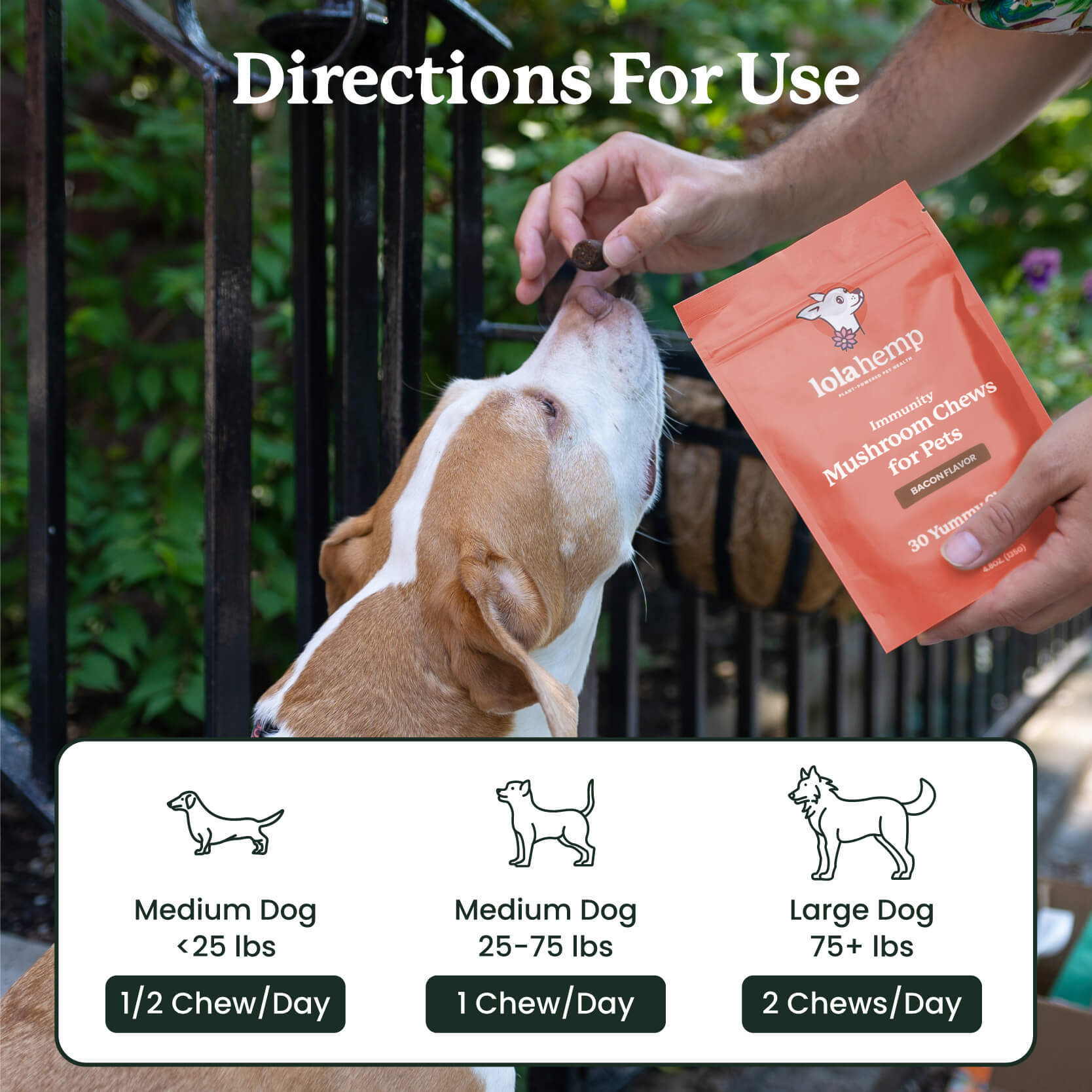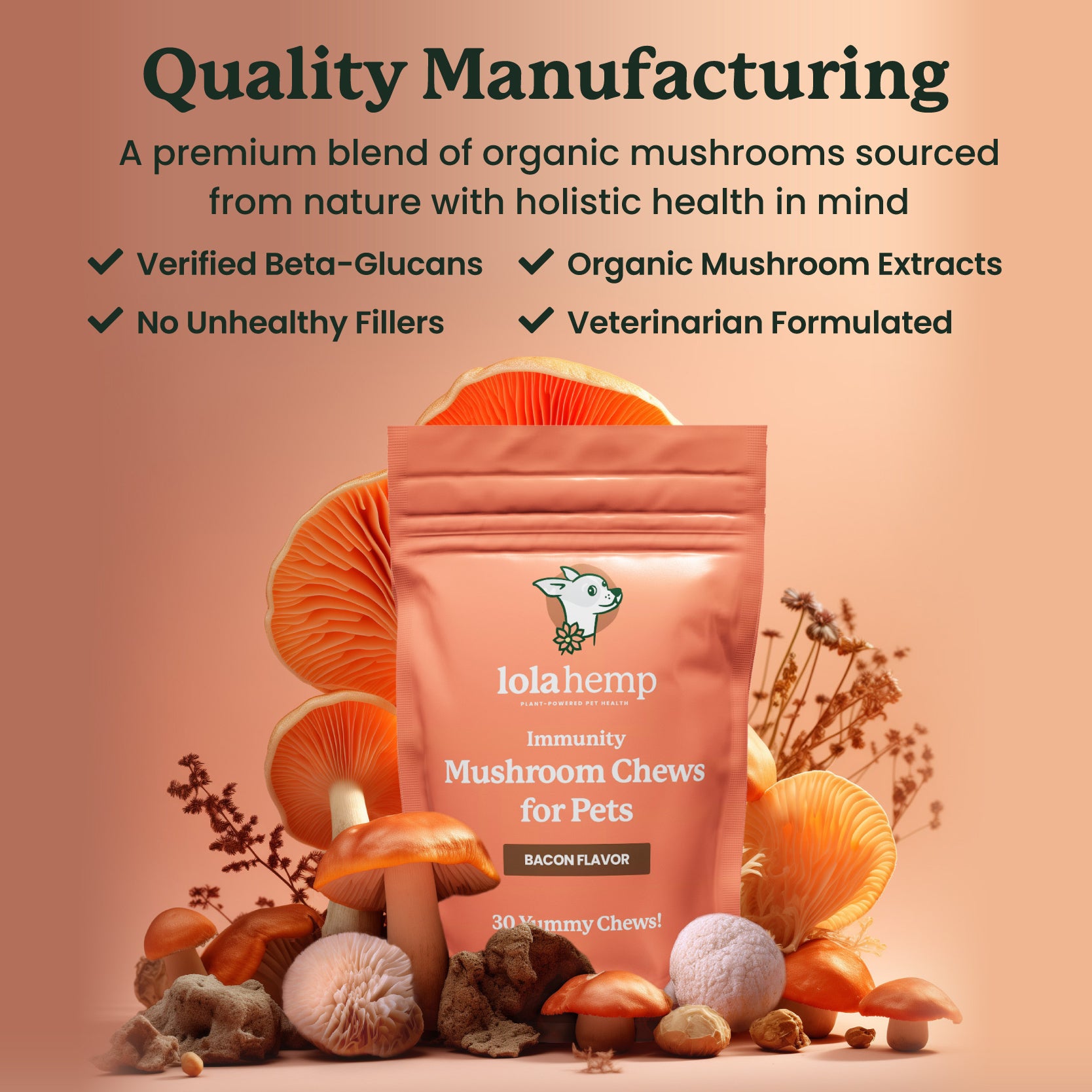As a pet parent, you must expect your dog to produce unpleasant smells from time to time — it’s all part of being a dog owner. Dog flatulence is a normal process that happens during digestion.
While occasional gas is normal, frequent or especially smelly farts can indicate that your dog’s gastrointestinal tract isn’t functioning properly. Thankfully, several canine gas remedies — like CBD oil, probiotics, or a tummy massage — can help ease discomfort and restore digestive balance.
This guide covers what causes your dog’s gas and how to safely manage it at home.
Canine Gas Remedies to Help Your Dog Feel Better
The first step to addressing dog gas is evaluating your pet’s diet and ruling out illness. Once health concerns are eliminated, these remedies can help bring relief:
- CBD oil
- Probiotics
- Tummy massage
- Warm bath
- Diet adjustments and feeding habits
- Regular exercise

CBD Oil
CBD may help relieve gas and bloating by supporting relaxation and digestive comfort. Research suggests that CBD can help reduce tension in the digestive tract and promote a healthy inflammatory response. Consult your vet for dosage guidance and to select a pet-safe CBD oil formulated for your dog’s size and needs.
Probiotics
Probiotics help restore healthy gut bacteria, improving digestion and reducing gas. You can add probiotic-rich foods like yogurt (if your dog tolerates dairy) or use a pet-specific probiotic supplement. Learn more about how probiotics support canine gut health here.
Tummy Massage
Gently massaging your dog’s abdomen can stimulate movement in the intestines and ease trapped gas. Use a flat hand and light circular pressure, keeping your dog comfortable throughout the process.
Warm Bath
A warm bath can also relax muscles and stimulate intestinal movement, helping relieve gas. Try combining it with gentle belly rubs for added comfort.
Don’t Feed Them Table Scraps
Human foods are often high in fat, salt, and sugar — all of which can upset your dog’s stomach. Stick to balanced, high-quality dog food or human-grade options formulated for pets.
Slow Down Their Eating
Eating too quickly can cause dogs to swallow excess air, worsening gas. Use a slow-feeder bowl or divide meals into smaller portions throughout the day to help.
Keep Your Dog Active
Regular exercise promotes digestion and prevents gas buildup. Incorporate playtime, walks, or light training into your dog’s daily routine.
What Causes Dog Gas Problems?
Passing gas is a normal part of digestion — bacteria in the gut break down undigested carbohydrates, releasing gas in the process. However, excessively smelly or loud gas may indicate an issue. Common causes include:
- Changing your dog’s diet
- Poor-quality food
- Digestive problems
- Obesity
- Swallowed air
- High carbohydrate intake
- Gastrointestinal disease
1. Poor-Quality Dog Food
Foods containing fillers, artificial additives, or preservatives can disrupt digestion and cause gas. Even if your dog eats a “premium” diet, sensitivities to specific ingredients can trigger flatulence. Your vet can perform food intolerance testing or elimination diets to pinpoint triggers.
2. Changing Your Dog’s Diet
Sudden diet changes can shock the digestive system, leading to gas. Gradually introduce new foods over a week or more. Dairy, high-fat, or high-fiber foods can be especially problematic.
3. Obesity
Overweight or sedentary dogs are more prone to gas. Studies suggest that obese dogs develop chronic flatulence more often than active, lean dogs. Exercise and portion control are key to improving digestion.
4. Swallowing Excess Air
Short-nosed breeds like Pugs and Bulldogs often gulp air while eating or drinking, leading to trapped gas. Feeding smaller, slower meals and avoiding vigorous activity right before eating can help prevent this issue.
5. High Carbohydrate Intake
Carbohydrate-heavy diets can increase gas production. Research shows that high-carb diets elevate glucose levels and increase fermentation in the gut. Opt for limited-ingredient, low-carb diets with digestible proteins and fiber instead.
6. Gastrointestinal Disease
Chronic gas can sometimes signal underlying gastrointestinal disease. Watch for symptoms like vomiting, diarrhea, weight loss, or appetite changes. Conditions such as IBD, parasites, or pancreatic insufficiency can contribute and require veterinary care.
When to See the Vet
If your dog continues to pass excessive or foul-smelling gas despite diet and lifestyle changes, schedule a vet visit. Seek immediate care if you notice:
- Loss of appetite or weight
- Persistent vomiting or diarrhea
- Visible discomfort or bloating
Your veterinarian can perform tests to rule out serious gastrointestinal conditions and recommend the most effective treatment plan for your dog’s digestive health.
Frequently Asked Questions About Dog Gas Remedies
Is it normal for dogs to fart a lot?
Occasional flatulence is normal, but frequent or strong-smelling gas may indicate diet issues or digestive imbalance.
Can CBD oil really help with dog gas?
CBD may help soothe the digestive tract and support relaxation, reducing tension that contributes to bloating and gas discomfort.
What foods cause the most gas in dogs?
Foods high in fat, carbohydrates, dairy, and artificial additives can cause excess gas. Some vegetables like broccoli and beans can also be culprits.
How can I tell if my dog’s gas is serious?
If your dog’s gas is accompanied by vomiting, diarrhea, bloating, or loss of appetite, consult a vet as it may signal a digestive disorder.
Do probiotics actually help with gas in dogs?
Yes, probiotics can restore healthy gut bacteria and improve digestion, helping reduce bloating and flatulence over time.

